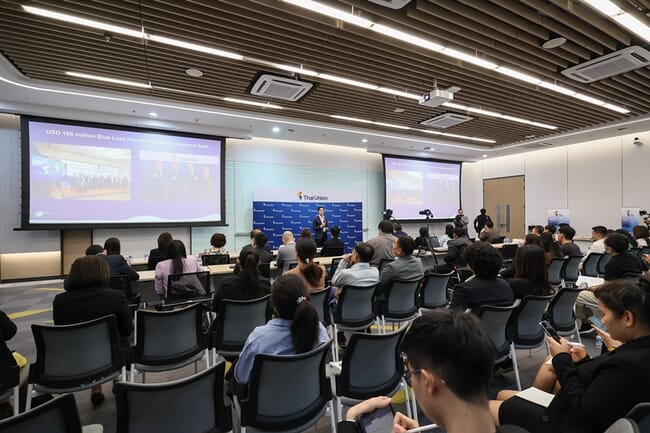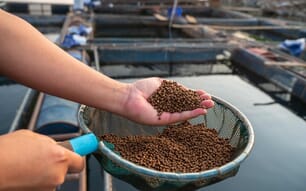
© Thai Union
Speaking at the UN Global Compact Thailand Expo 2025, the company emphasised the role of blue finance – investments that support ocean sustainability – in helping the shrimp sector reduce emissions and move toward net zero.
At the event, titled “Blue Financing and Aquaculture: Empowering the Sustainability Transition,” representatives from the Thai Department of Fisheries, the Asian Development Bank (ADB) and local shrimp farmers discussed ways to mobilise capital and knowledge to support sustainable aquaculture practices.
A centrepiece of the discussion was Thai Union’s initiative to decarbonise shrimp production. Looking ahead, the company sees the potential for most shrimp farms across Thailand to adopt low-carbon practices, supporting progress toward its broader goal of achieving net zero by 2050.
“As a global leader in the seafood industry, Thai Union is committed to driving sustainability across the sector through a range of initiatives. One of our key priorities is reducing greenhouse gas emissions in Thailand’s aquaculture industry,” said Yongyut Setthawiwat, managing director and group treasurer at Thai Union Group, in a press release.
Transparency in sourcing
Shrimp produced through Thai Union’s decarbonisation programme are now available in the US under the Chicken of the Sea brand. The initiative, developed with partners including The Nature Conservancy, Ahold Delhaize and Whole Foods Market, supports farms in adopting renewable energy, improving efficiency and using technologies that reduce environmental impact. The shrimp are fully traceable from hatchery to shipment, aiming to offer greater transparency in sourcing.
“Blue finance has the potential to transform how we support ocean-based industries. By aligning financial flows with environmental and social outcomes in line with global standards, we can empower farmers to make improvements in ways that benefit not only themselves, but also businesses, society, the environment and biodiversity,” said Fonthip Yuthaseree, consultant in sustainable finance at ADB.
For shrimp farmer Ponchart Luangnarumitchai of Anan Farm, who has participated in the programme for the past year, the impact is already tangible: “Before joining, it was difficult to access the knowledge, technology and financing needed to reduce emissions from my farm. But over the past year, I’ve gained valuable insights and practical experience in applying new technologies. Installing solar panels has significantly lowered our energy costs, and using high-quality, sustainable shrimp feed means we use less feed and maintain better water quality.”
The event highlighted the challenges of reaching net zero in aquaculture, while also pointing to the potential of cross-sector collaboration and targeted investment to support practical, scalable solutions.



